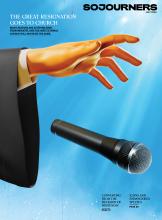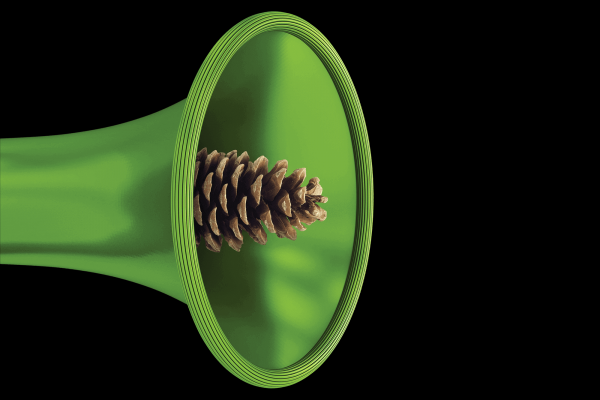DEEP IN OLYMPIC National Park in Washington is the quietest place in the United States. In 2005, one square inch of Hoh Rain Forest—marked by a small red stone—was designated for sound protection.
The logic is simple, according to acoustic ecologist Gordon Hempton: If anthropogenic (human-caused) noise can impact many square miles, as scientists have observed, then a natural point of silence, protected from such sound, can also impact many square miles around it.
Preserving natural silence and setting limits on our human sonic footprint, on land and underwater, is a leading edge of ecological practice and regulation. Similar to the dark-sky movement to reduce light pollution, Hempton cofounded Quiet Parks International to defend natural silence.
For billions of years, the Earth was very quiet. Only the low pounding of waves, rivers of wind, thunder. No birdsong, no frog choruses, no insect beatbox. With flowers came winged pollinators and, eventually, an explosion of nature’s creaturely orchestral arrangements.
Read the Full Article

